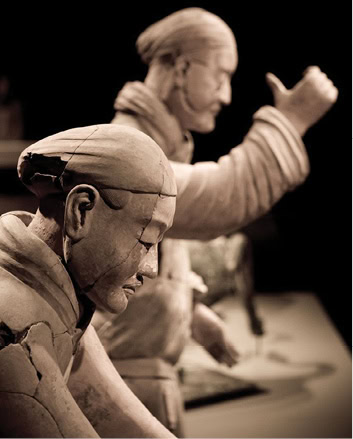In 1986 Loyola University of Chicago in cooperation with the Bureau of Social Studies for the Chicago Public Schools launched its HTA affiliation with a program on the U.S. Bicentennial under the direction of Professor Harold Platt. Upon completion of the course, participants and other Chicago secondary school teachers indicated a strong interest in the program and recommended Latin America as a future topic. With Loyola’s Professor as project director, an HTA program on Latin American history was planned for 1988–89. Generous financial support was provided by the Illinois Humanities Council, the Loyola-Mellon Fund, the National Endowment for the Humanities, the Joyce Foundation, as well as HTA.
The program at Loyola has two components. The first, a Summer Institute held July 1988, was an intensive two-week graduate seminar on the history of Latin America for fifteen participants from Chicago’s public and private secondary schools. The class met each day, and each participant was expected to complete readings, prepare presentations, and engage in class discussions and projects.
Each class was designed around a specific topic or theme, “Democracies, Debts, and Drugs;” “The Role of the United States in Latin America;” and Hispanics in the United States.” The seminar viewed the Argentine film on military brutality, The Official Story, and with selected readings, considered topics such as the role of women in Latin America and authoritarian regimes. The Brazilian film Pixote, depicting the plight of Sao Paulo’s homeless children provided the basis for an entire session devoted to “the human condition in Latin America.”
The Summer Institute came on the heels of the disputed presidential elections in Mexico. After carefully studying as much as possible about Mexico, in the given time allotted, it was decided to hold our own elections for the president of Mexico, sticking closely to Mexican voting procedures. The outcome generated considerable discussion and interest in forthcoming elections in other Latin American countries.
During the summer session, participants exchanged syllabi, reading lists, and relevant articles to develop or expand their individual high school course curricula. Translating the institute’s content to the high school classroom was a matter of constant discussion.
Starting in September, the Summer Institute was followed by a Guest Speaker Series, held once a month during the course of the 1988–89 academic year. The speakers, specialists on Latin America from Loyola’s faculty as well as distinguished historians from other universities joined participants for an informal social hour, hosted dinner, and discussion. Immediately thereafter, the invited speaker offered a public presentation on a Latin American topic of his/her expertise. Participants were expected to read selected materials before each speech.
The Summer Institute and the Speakers Series on Latin America covered the entire academic year. For participants interested in graduate credit, a research paper on a subject of their choosing was due at the end of the spring semester. More than half opted to take the course for credit. All participants received generous stipends, books and scholarly materials, paid graduate tuition, and library privileges.
The purpose of the HTA program at Loyola was to encourage local secondary school teachers to avail themselves of Chicago’s academic resources and to enrich each individuals curriculum on Latin American history as he/she became familiar with the wealth of resources in the Chicago area. Through its faculty and resources, Loyola was able to bring to this alliance an excellent setting for the interchange of ideas and experiences and the fostering of professional relationships.
The response and enthusiasm of all participants has been most gratifying, and public attendance at guest speakers presentations was far greater than ever anticipated.
Susan Schroeder is an assistant professor of Latin American history, Loyola University of Chicago and serves on the Historical Statistics Committee of the Council on Latin American History and is a member of the AHA.


